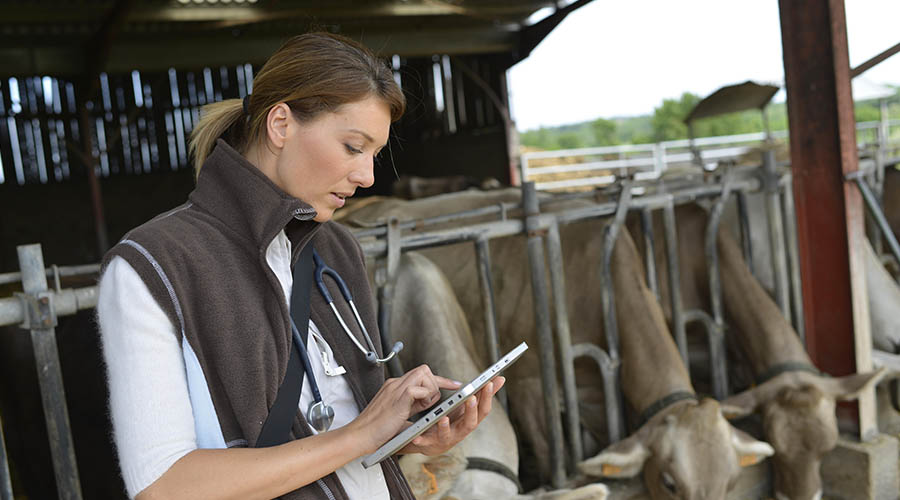Digital Transformation of the food and beverage sector

The food and beverage industry is experiencing a period of transition and challenge. Large global consumer packaged goods companies are facing shrinking margins and lower growth, with agriculture creating an emerging challenge. Add to that the supply chain challenges as we emerge from lockdown, and we find an industry that has lots of opportunities and a strong need for change.
From the Industrial Internet of Things to connected factories to predictive maintenance and intelligent asset strategies, the dramatically lower costs of smart sensors, the cloud, big data, and analytics are all providing the tools food and drink companies of all sizes need to overcome today’s challenges and prepare for tomorrow’s opportunities. This digital tornado represents a once-in-a-lifetime opportunity to make not just incremental improvements, but a transformative step-change across a company’s manufacturing operations.
Turmoil breeds opportunity and creates a perfect time to trial new things and generate new innovation.
Trust is a key factor of digital transformation. With the current ways in which new technologies are being introduced, people need reassurance in order to adapt and adopt these different types of technologies.
At the recent Manufacturing Made Smarter Food and Drink Supply Chain workshop, KTN in partnership with Innovate UK explored some key challenges and opportunities for digital technologies to escalate innovation across the Food and Drink sector.
Main challenge for the industry in terms of digital adoption
Cost is a key challenge. Food and Beverage companies are facing the issue of how they can deliver food to consumers at the lowest cost. There are competing incentives across the wider supply and value chain. This results in issues around data usage and appropriate prices not being paid for goods. As an industry we need to align these incentives to ensure the consumer pays the lowest cost for their items.
De-centralised supply chains results in a massive headache in terms of how to connect these organisations digitally, particularly with huge challenges around interoperability of data. Large food and beverage companies need to make the right choices around the platforms and technologies they choose. Often they don’t want to be married to one system and may use 2 or 3 vendors to hedge their bets. There are huge opportunities for collaboration both within organisations and out with them, however, this is strongly influenced by lack of trust and competitive pressures.
How can the sector create the right environment for change?
The private food and beverage sector is incredibly innovative. Looking at what happened during Covid-19 demonstrates this. It did a brilliant job in ensuring reducing supermarket shelves were restocked quickly and efficiently.
There is a need to explore the role of the public sector, particularly around regulation. FSA has a role to provide guidance around GDPR, data sharing, data trust, interoperability etc. More conversations need to happen between Government, academia and industry to ensure there is a clear pathway going forward.
As many organisations are taking their first steps into digital transformation, they need support to help map the data infrastructure and roadmap of what they want to do. Many will be trialling, testing and pilot testing new technologies to see what works for them. They will be watching their competitors moves to see what they are using. Technology is constantly changing so what is here today may not necessarily be here tomorrow.
Investment in the food sector has been massive over the last 5 years. There are opportunities to bring alignment around all the initiatives going on, and on the other side, we need to address how we create a supporting public digital infrastructure to overcome the challenges the industry is currently facing.
How different technologies help solve the trust issue
Blockchain as a technology offers extensive benefits, however, it is not a silver bullet to solve supply chain inefficiencies. It could help connect your production systems, as one part of wider digital strategy.
A good starting place is to earn the trust of your end buyers and suppliers. By taking the first steps, you are showing you are open to change and willing to trust the partners involved. Companies both large and small need to work together and by doing this, the most attractive and beneficial technologies and platforms will be exposed. The ability to collect the flow of products, money and information across the supply chain will really help encourage collaboration and better ways of working. Trial it, trust it before fully implementing it.
The processes to process food are highly regulated. There is a huge amount of data that needs to be collected for audit requirements, goods in, goods out etc. As the industry goes forward, that amount of bureaucracy doesn’t look like it will reduce. Paperless systems will hugely improve processes to remove paper and create efficiencies, but more innovation is needed to develop digital systems and technologies to automate and streamline these processes.
The funding available via the ISCF Manufacturing Made Smarter competition could be used to tackle some or all of these challenges. Businesses should consider where they could innovate to make the biggest impact; developing more informed customer data analytics, collaboration in groups, scaling digital technologies or data visualisation across supply chains.
Find out more about applying for the Manufacturing Made Smarter competition here.

